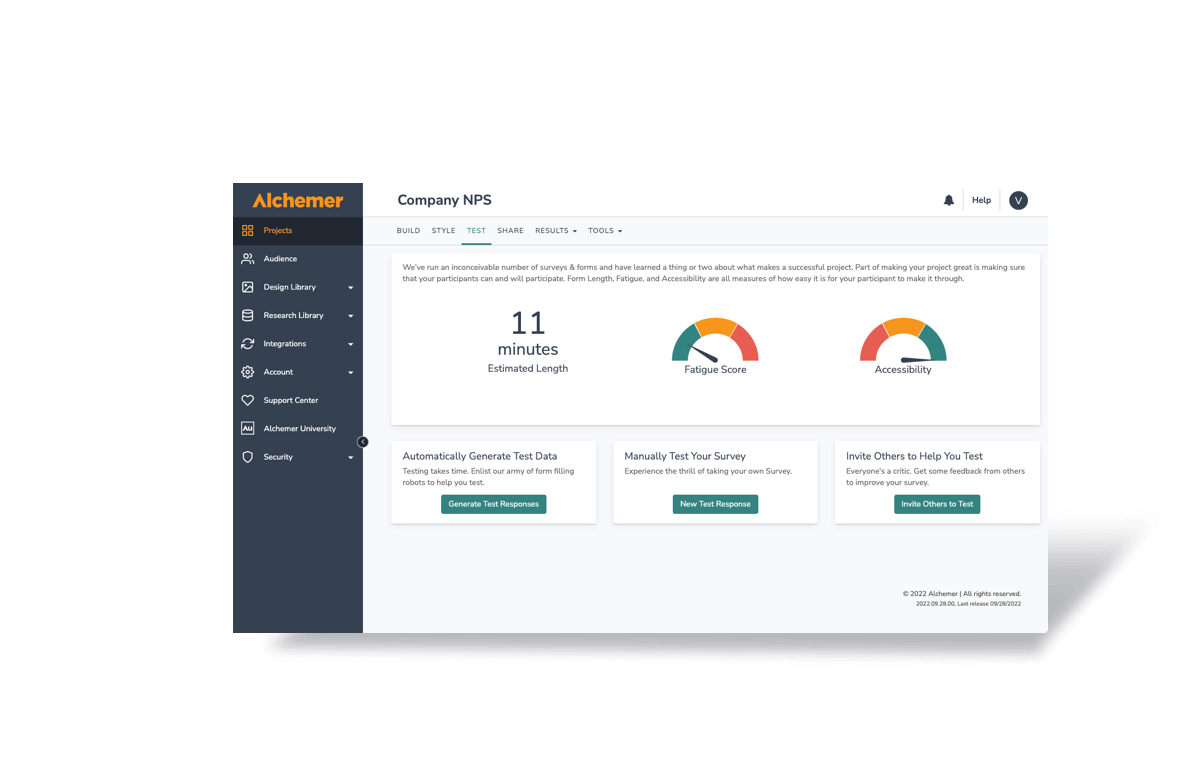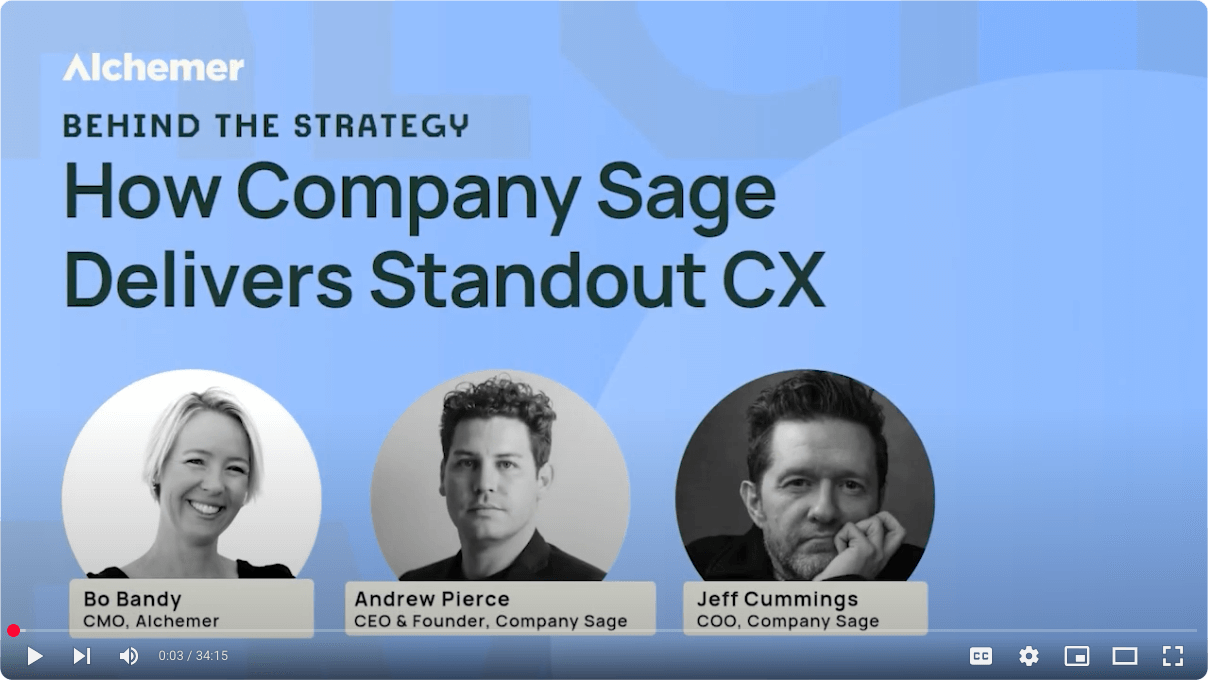Ask the right questions based on where the prospect is in the buyer’s journey, and you’ll establish a more meaningful connection with each one as an individual.
Knowing more about a prospect allows you to tailor your conversations without doing a lot of fact-finding on the phone.
This information can shorten your sales cycle and increase the percentage of leads that you ultimately win.
Survey Questions to Ask a New Prospect
These are casual, getting-to-know-you questions, but that doesn’t mean they should be sloppy or imprecise.
They will guide your communication with this person for weeks to come, so they should seem casual while actually being very deliberately created.
Surveys like this can be administered by a lead qualifier or a sales rep directly depending on the size of your team. Some sample questions for these top of funnel buyers are:
- How often would you like to hear from us? Provide a drop-down menu of options, and be sure to abide by the choice they make!
- Which topics are you most interested in learning more about? Having this detail will allow you to provide tailored content via email in the future.
- What are you excited about? What are your goals? This is another way to get at the information from question #2. Their answers can help a salesperson provide content (and features/products) that are relevant to this person’s future plans.
- Demographic details you didn’t capture in your lead form. Don’t go overboard and ask a dozen questions, but if age, title, and/or income level is important for your sales process, this can be a good time to collect that data.
Survey Questions for Leads Considering Their Options
One of the worst things a salesperson can do is overwhelm a prospective customer with feature and functionality information that’s not applicable to their needs. Survey questions help you streamline your communication so you’re only providing things a lead is interested in.
A word of caution: these are for highly qualified leads only.
Don’t throw these around with leads who haven’t indicated a strong interest in making a purchase.
Some questions to give you insight into a lead’s buying plans include:
- What strategies/plans/tools do you have in place right now that deal with your problem? This will let you know if you’re up against an incumbent competitor, or if this will be a new purchase.
- What process will you use to evaluate possible solutions? If it’s demos, online reviews, or simple side-by-side feature comparison, your approach can now be tailored accordingly.
- When will you decide? If you’re working multiple leads, knowing each one’s time frame for purchase can go a long way in helping prioritize your work.
- If we can do A, B, C for you, will you be ready to go with our product/service? Some people may have a trigger that they’re waiting for – a certain functionality, or a feeling about the company. If you know about it, you can help make it happen.
Survey Questions to Ask Right After Purchase
If you want to learn more about buying behavior and what influences leads to become customers, it’s ideal to survey them very soon after they make a purchase.
The longer you wait, the less likely the are to remember what really encouraged them to buy.
David Darmanin, CEO of the software company Hotjar, offers some great ideas that go outside the realm of typical, dry customer questions:
- Where exactly did you first hear about us? Segmenting this response by account size can help you determine common sources of high value accounts.
- How would you describe us to a friend? Stuck in a language rut? Look at the results of this question for new ways to describe what you do.
- What would you miss the most if you could not use us anymore? This will tell you what your most important features are from your customers’ perspective, so you can lead with those in your next sales conversation.
- What’s the one big thing we’re missing? Your product development people will love this one.
- Please list the top three things that persuaded you to use us. Identifying patterns in these responses may help you reprioritize your website or sales collateral to lead with the most persuasive items first.
The majority of these questions will give you the best data if you use an open text box as your answer option. It will take longer to analyze the data, but you’ll get more honest and actionable feedback.
Survey Questions for Existing Customers
Learning what your current customers have in common can help you identify more leads who meet those criteria.
You can also get valuable feedback on how to improve your product (and your sales and marketing efforts) from people who have already decided to do business with you.
Please remember, however, that customer service and product teams may also be communicating with your customers via surveys. Things like NPS and support feedback requests are often randomized, so you won’t know when a customer might get one.
Don’t over survey your customers, or you’ll reduce their likelihood to respond.
But, when used wisely, these survey questions can be crucial in guiding future strategy:
- How well is our product/service performing? Only ask this one if you can be sure they haven’t had a similar request recently from other teams.
- What content helped you make your decision? This one is a great way to identify key pieces of information that help tip buyers into customers.
- What factors influenced your decision to buy from us? Like the above, these results can help you determine what features or functionality matter most to different types of buyers, shortening your sales cycle for those prospects in the future.
Collect All Lead and Prospect Feedback in One Place
If you have a sales team of more than one person, or a sales team who needs to work with marketing, product development, or anybody else in your organization, it’s vitally important that you collect sales survey data in one central location.
Online data collection tools (like Alchemer) allow each salesperson to efficiently deliver survey questions to prospects, leads, and customers.
And, more importantly, they collect all that data in one place so you can quickly identify and act on patterns.
By connecting your survey tool to a CRM, you can also track how often each customer has received a survey. This technique can reduce survey fatigue and improve your chances of getting feedback each time you reach out.
Alchemer’s Team Edition makes it easy for your entire sales and marketing teams to access surveys, or just the data, depending on their roles and permissions.




